The interior office gives surprisingly little away about the man. There’s a window overlooking Madison Avenue that takes up an entire wall. The rest of the walls are painted the blooming, faded silver of an old mirror, which augments the daylight coming in and makes the entire room feel shimmery and bright. There’s more modern art on the walls: something splattery and Pollock-esque over Meserov’s desk, a steel-grey and rust Anselm Kiefer (or near as dammit) above a worn tobacco-leather chaise longue that reminds her uncomfortably of a psychiatrist’s couch and looks about a hundred years old. Further down is a tall, narrow white canvas stenciled with a stack of huge black letters: RUN DOG RUN. The desk and bookcases are all mid-century modern, and the whole office would look quite sleek if it weren’t for the fact that Misha Meserov is an unrepentant slob.
His desk is littered with papers and 8x10 photographs, all turned face down, and even the chaise longue where he motions for Evie to sit has a few files dumped on it. He doesn’t need a secretary, he needs a containment crew. Evie gingerly moves the files and stacks them crossways at one end of the chaise longue, then sits down, smoothing the skirt of her secondhand designer dress. She folds her hands and tries to look keen and professional and able to be trusted with secrets, and not at all like a girl who won’t be able to make rent next week if she doesn’t land a job by the end of this one. New York is a cruel mistress. Evie and her roommate Claudia live in a tiny apartment in Bed-Stuy. It’s all they can afford, and even so, they can’t really afford it.
Meserov leans against his desk and sighs, glancing down at her résumé in the file. “So. Call me Misha.” He seems tired.
“Are you Russian?” she asks.
“No. Georgian. Caviar and horses Georgia, not peaches and hip-hop Georgia.” He smiles wearily, clearly accustomed to having to explain. “A small and fiercely independent country which has spent most of its history wedged between two large empires. Three, if you count Persia.”
“I’m sorry,” she says.
“It’s okay,” he murmurs, paging through her résumé. “Americans never know where anything is.” He looks at her over the folder. “You’re overqualified. Journalism degree from a top school; internships at a big magazine. What are you doing here?”
Evie sighs and glances out at the towers of Manhattan, arrayed outside the window, glittering in May’s midday sun. “You know how many ads were in the print edition of the New York Times main section today?” she asks, with a sadness she can’t keep out of her voice. “Three. Three ads. The news is free now, and even the papers lucky enough to still exist are employing half the people they did when I started my journalism degree. The newspapers are dying. Magazines are, too. Even the big digital sites can’t make money; they’ve been shuttering for years.”
She pinches the bridge of her nose, suddenly feeling entirely too emotional for a job interview. “Hundreds of journalists more experienced and better connected than me can’t find work. The only way I can compete is working for free. And I do. I write my pieces on Medium and Vox and hope somebody notices. I took that internship, which didn’t pay a dime, hoping it would pave my way. That I’d impress them enough they’d hire me. But they didn’t.” She tries to smile, but it still hurts, more than a year later. “They just got a new intern.”
She realizes she’s been staring down at her hands, which have curled into white-knuckled fists where they rest on her thighs. She forces herself to relax, and looks up to meet her fate.
Misha hasn’t moved. He just watches her, his posture neither tense nor relaxed, letting her fill the quiet of the office with words. Somewhere in the back of Evie’s mind she notes it down as something she wants to try later, the way he uses silence as a trap for the unwary.
For now, she shifts on the chaise longue, its horsehair stuffing creaking, and hopes she’s not blushing too hard. “But yeah. That’s what I’m doing here. I’m super organized and a great executive assistant, and I’m a trained investigative journalist. So whatever you investigate, I can, uh… help.”
“Miss Cross.” Misha smiles at her, wry and melancholy at the same time.
“Evie,” she says, sitting up straighter. She will get through this interview and, dammit, she will do so with honor. Evie Cross is not a quitter.
“Evie,” he repeats, inclining his head slightly in acknowledgement. “Most people think of the law as a shield, but it can also be a sword. It shouldn’t be, but then many things in this world aren’t as they should be. Sometimes the law can even be wielded like a stiletto, thin and sharp and hardly felt at all until it causes irreparable damage.” Misha reaches back onto the surface of the desk he’s leaning against and picks up a photo, seemingly at random. He shows it to Evie, his hand mostly covering the image. She doesn’t catch much context, enough to see that it’s of two mostly naked people in a compromising position.
Misha tosses the photo back on the desk, face down. “The work I do is… not for everyone. Most people will loathe it. A few people will enjoy it immensely. Neither of those groups do I wish to hire. So I’m going to ask you a couple of questions to give myself a feel for where you fit. They are not standard interview questions. It’s okay if you don’t want to answer some of them.” He looks at her, face sincere and his wide, feminine lips slightly parted. “It’s okay if you don’t answer any of them.”
Evie can’t help but smile a little. “Though silence is an answer in itself.”
A brief expression flickers across Misha’s face, too fast for her to catch whether it’s approval or annoyance, but bitter experience tells her it’s the latter. Being too smart too soon never wins you anything as a woman, and Evie thinks it’s one of the great flaws in the world. She’d always assumed if she were really good at something, if she worked hard to be the best, it would impress the boys, and then they’d like her as much as they liked the other girls. Maybe even more. But finally, at twenty-five, she’d realized that boys didn’t want the best girls. They wanted girls like Gemma: decorative little blondes who were always a complement, never a challenge. She isn’t surprised that Misha is so typical, but her shoulders slump a little further, and the weight of the world settles a little heavier upon them. She’s blowing this, and she can’t afford to blow this. Not if she wants to stay in New York.
Misha crosses his arms, which only serves to accentuate the thickness of his shoulders and upper arms over his narrow waist. “You’re walking down the street and two men start kissing right in front of you. What do you do?” he asks.

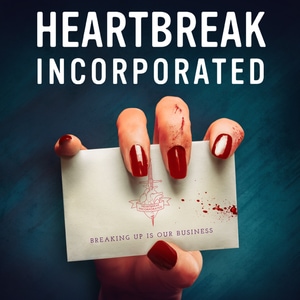

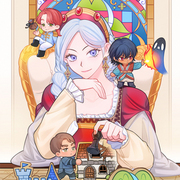

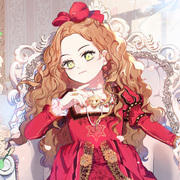
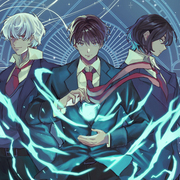
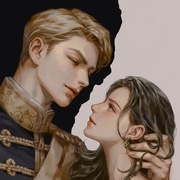
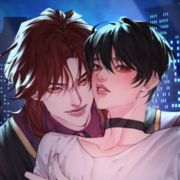

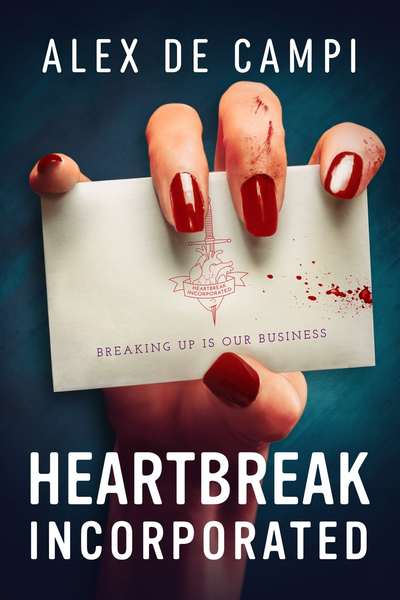
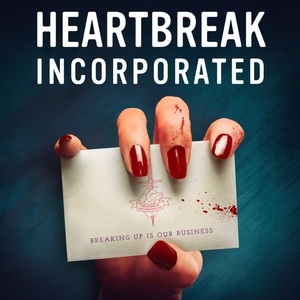
Comments (7)
See all